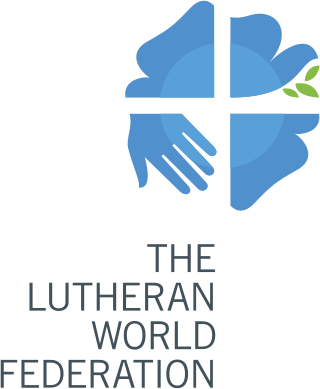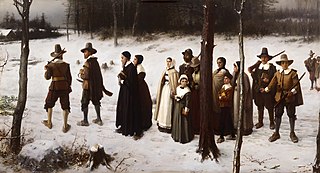
The World Council of Churches (WCC) is a worldwide Christian inter-church organization founded in 1948 to work for the cause of ecumenism. Its full members today include the Assyrian Church of the East, the Oriental Orthodox Churches, most jurisdictions of the Eastern Orthodox Church, the Old Catholic Church, the Lutheran churches, the Anglican Communion, the Mennonite churches, the Methodist churches, the Moravian Church, Mar Thoma Syrian Church and the Reformed churches, as well as the Baptist World Alliance and Pentecostal churches. Notably, the Catholic Church is not a full member, although it sends delegates to meetings who have observer status.

Ecumenism – also called interdenominationalism, transdenominationalism, or ecumenicalism – is the concept and principle that Christians who belong to different Christian denominations should work together to develop closer relationships among their churches and promote Christian unity. The adjective ecumenical is thus applied to any interdenominational initiative that encourages greater cooperation and union among Christian denominations and churches.

The Lutheran World Federation is a global communion of national and regional Lutheran denominations headquartered in the Ecumenical Centre in Geneva, Switzerland. The federation was founded in the Swedish city of Lund in the aftermath of the Second World War in 1947 to coordinate the activities of the many differing Lutheran churches. Since 1984, the member churches are in pulpit and altar fellowship, with common doctrine as the basis of membership and mission activity.
The World Alliance of Reformed Churches (WARC) was a fellowship of more than 200 churches with roots in the 16th century Reformation, and particularly in the theology of John Calvin. Its headquarters was in Geneva, Switzerland. They merged with the Reformed Ecumenical Council in 2010 to form the World Communion of Reformed Churches.

The Christian Conference of Asia is a regional ecumenical organisation representing 15 National Councils and over 100 denominations (churches) in New Zealand, Australia, Bangladesh, Burma, Cambodia, East Timor, Hong Kong, India, Indonesia, Laos, Japan, Korea, Malaysia, Pakistan, Philippines, Sri Lanka, Taiwan and Thailand.
The Federal Council of Churches, officially the Federal Council of Churches of Christ in America, was an ecumenical association of Christian denominations in the United States in the early twentieth century. It represented the Anglican, Baptist, Eastern Orthodox, Lutheran, Methodist, Moravian, Oriental Orthodox, Polish National Catholic, Presbyterian, and Reformed traditions of Christianity. It merged with other ecumenical bodies in 1950 to form the present day National Council of Churches.

More than 70% of the population of Botswana is Christian. Most are members of the Anglican, United Congregational Church of Southern Africa, the Methodist Church of Southern Africa, and African independent churches. Anglicans are part of the Church of the Province of Central Africa. The Roman Catholic Church includes about 5% of the nation's population.

The Protestant Church of Algeria is a federation of Protestant churches from the Reformed and Methodist traditions established in 1972 in Algeria. It is officially recognised by the government of Algeria as the Association of the Protestant Church of Algeria.

Religion in Namibia is dominated by various branches of Christianity, with more than 90 percent of Namibian citizens identifying themselves as Christian. According to the government's survey, in 2013 up to 75% of the country was Protestant, including as much as 50% Lutheran.
The Communion of Protestant Churches in Europe is a fellowship of over 100 Protestant churches which have signed the Leuenberg Agreement. Together they strive for realizing church communion, especially by cooperation in witness and service to the world. Prior to 2003 the CPCE was known as the "Leuenberg Church Fellowship".

The Evangelical Lutheran Church in Namibia (ELCIN) is a Lutheran denomination based in Namibia. It has a total membership of over 853,522 in 2023, mainly in Northern Namibia. Formerly known as the Evangelical Lutheran Ovambo-Kavango Church (ELOC), it played a significant role in opposition to Apartheid in Namibia and was part of the Namibian independence struggle.

Protestantism is a branch of Christianity that follows the theological tenets of the Protestant Reformation, a movement that began in the 16th century with the goal of reforming the Catholic Church from perceived errors, abuses, and discrepancies.
The Reformed Presbyterian Church of Equatorial Guinea is a minority church in Equatorial Guinea. It is reformed by its theology and presbyterian by its form of government, as stated in its constitution. The principal religion in Equatorial Guinea is Christianity, with approximately 85-93% of the population as followers. Most Christians belong to the Roman Catholic Church (80-87%) while a minority are Protestants (5-7%). Another 5% of the population follow indigenous beliefs, 2% are Muslims, followers of Baha'i and other beliefs.

Protestantism is the largest grouping of Christians in the United States, with its combined denominations collectively comprising about 43% of the country's population in 2019. Other estimates suggest that 48.5% of the U.S. population is Protestant. Simultaneously, this corresponds to around 20% of the world's total Protestant population. The U.S. contains the largest Protestant population of any country in the world. Baptists comprise about one-third of American Protestants. The Southern Baptist Convention is the largest single Protestant denomination in the U.S., comprising one-tenth of American Protestants. Twelve of the original Thirteen Colonies were Protestant, with only Maryland having a sizable Catholic population due to Lord Baltimore's religious tolerance.
The National Council of Churches of Kenya (NCCK), (in Swahili, Baraza kuu la makanisa nchini Kenya) is a fellowship of Protestant churches and Christian organisations registered in Kenya. It is currently Chaired by the Africa Brotherhood Church (ABC) Archbishop Dr. Timothy N. Ndambuki. Its motto is "For Wananchi" which means "for citizens" (Wananchi meaning citizens in Swahili): This motto has been exemplified in NCCK's long involvement in public service, advocacy, and social responsibility in Kenya. It is a member of the Fellowship of Christian Councils and Churches in the Great Lakes and Horn of Africa.
The Fellowship of Middle East Evangelical Churches (FMEEC) is an ecumenical organisation comprising Protestant churches in the Middle East with representatives from Sudan to Iran. Established in 1974, the current president of the FMEEC is the Rev Dr Andrea Zaki.

The Evangelical Church of the River Plate is a United, Protestant denomination with congregations in Argentina, Paraguay, and Uruguay. It is named after the Río de la Plata Basin, where the majority of its congregations are located. The IERP was affiliated with the Evangelical Church in Germany from 1934–1965, when it became independent. The church ordains women as ministers and supported civil unions and same-sex marriage. It has approximately 27,500 members.











